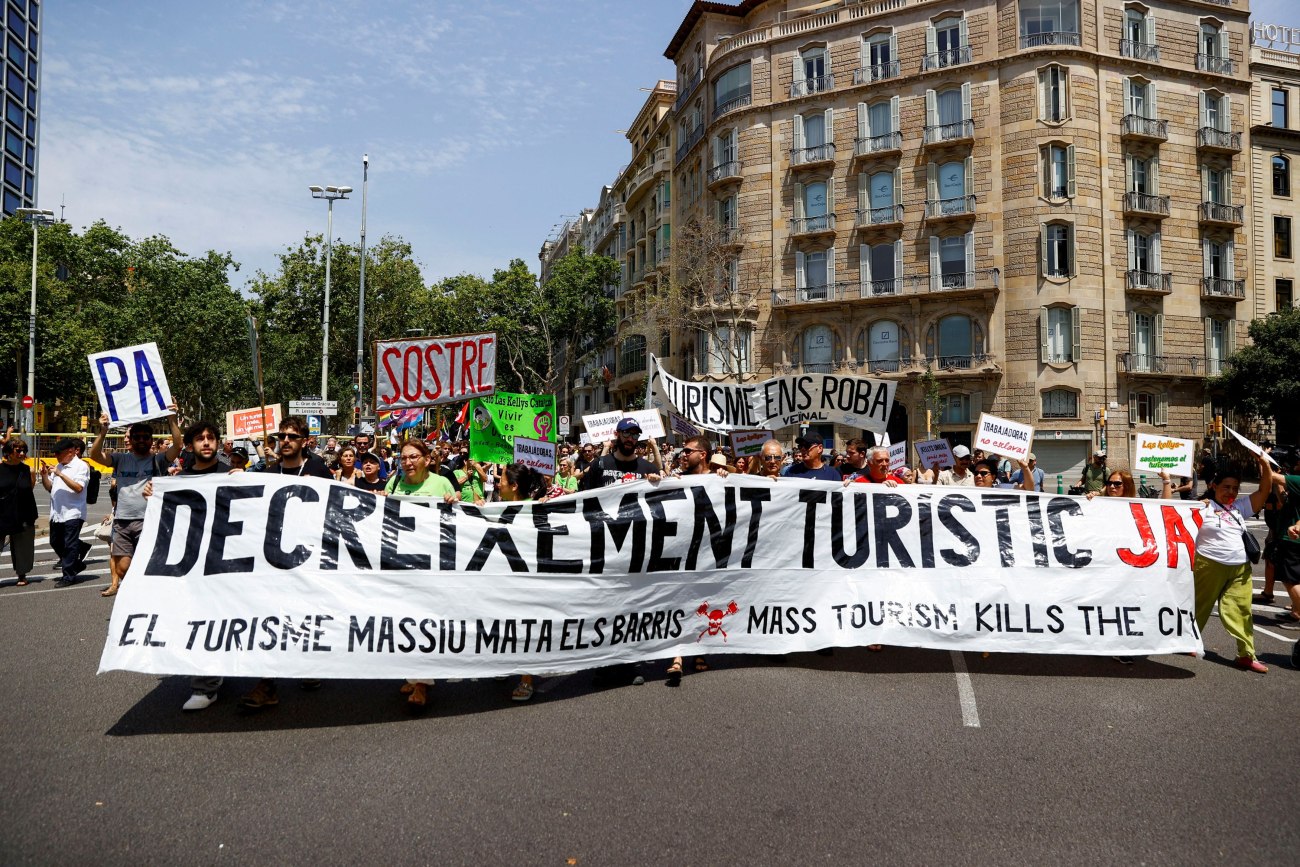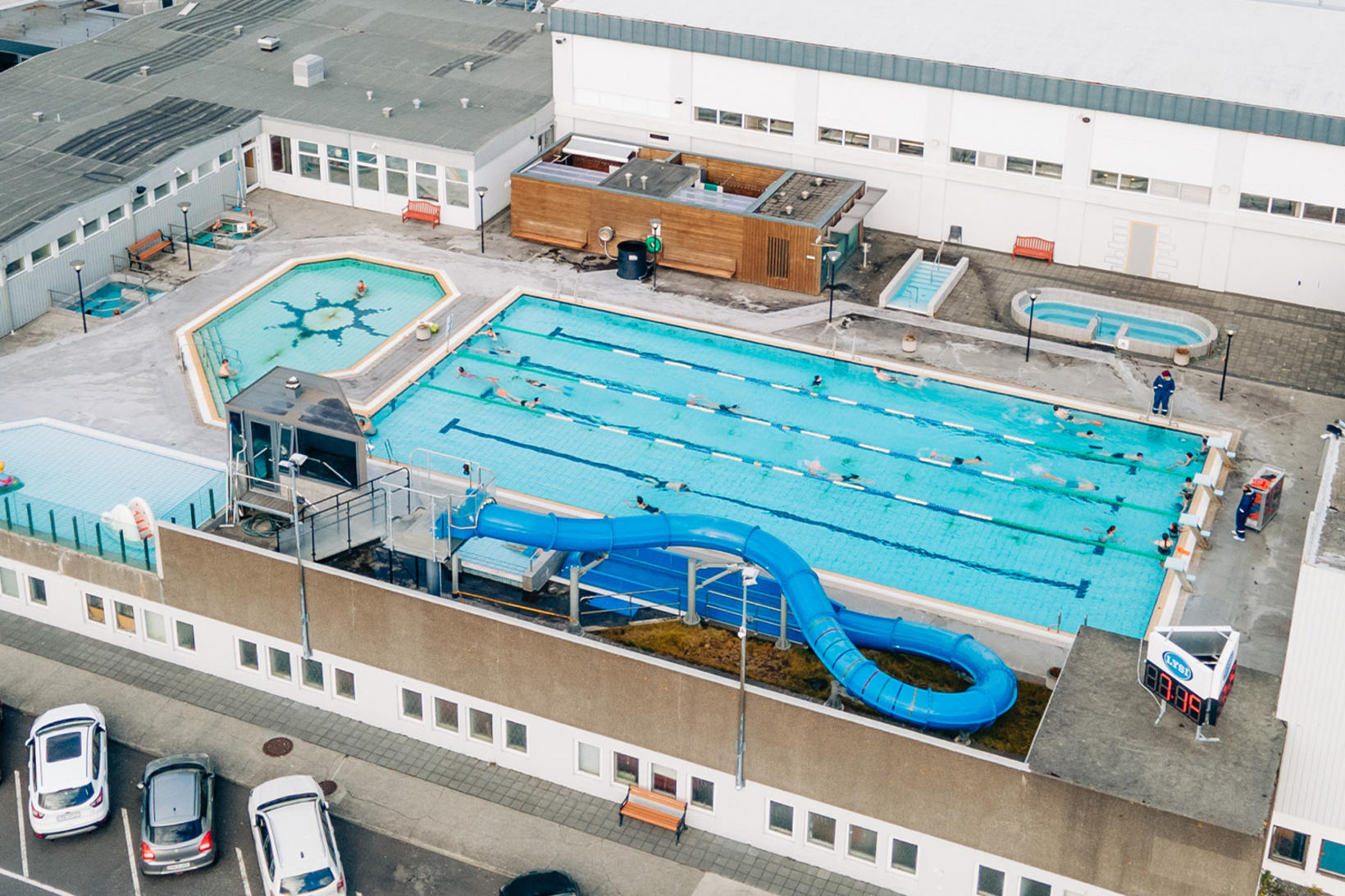Overrunism: Europe is taking measures

Overrunism and its impacts return with the summer, while activists promise to be « warm » as Spain, Canary islands, Italy and elsewhere are preparing for mass demonstrations.
Local communities still react to the effects of mass tourism – Eliminating housing prices, saturation, environmental burden, irresponsible travelers – and require solutions.
Thousands of people have already taken to the streets in the Canary Islands to protest as the frustration for full cities has turned into rage. And they are not the only ones: A new wave of protests are expected to break out in many areas of southern Europe this summer.
The truth is that any changes in the tourism industry are slow, as consensus is required by a wide range of stakeholders and time for the implementation of relevant programs. However, this year in Europe there are specific initiatives for more sustainable tourism development, aimed at tackling the environmental, social and economic pressure created by over -tourism.
Frustration for full cities has turned into anger and demand for immediate treatment of over -tourism
Protesters against over -tourism in Barcelona hold banners that read « Reduce tourism now »
On the other hand, travelers seem to gradually gain more consciousness of the impact of over -tourism, while local communities are stepping up their pressure on the authorities to solve the problem.
Switzerland: ‘Green’ movements
According to BBC articleSwitzerland invests in « green » movements and promotes tourism out of the season. Its rail network will operate entirely with hydroelectric power this year and tourists will have discounts when staying in certified viable hotels. The country has some of the most accessible mountains in the world in the world, with trains serving their peaks for more than 150 years.
Tourist taxes and new means of transport are applied to high traffic to better management. There are discounts, such as 33% in public transport when booking a SweisStainable Sustainability Certification hotel, or a 25% discount for any SWISSTAINABLE hotel stay, as part of the homonymous new strategy aimed at the most uniform distribution of tourists across the country throughout the year.
Other measures are the Tourist tax of 5 Swiss Franks for anyone visiting the pier that is presented in the Korean drama « Crash Landing On You », with money spent on maintenance and infrastructure, as well as a new parking lot outside Lauterbunnen linked to the local train to reduce traffic to the city.
The message emitted: Explore out of season and with public transport- and be prepared to pay more for the most popular points.
Spain: Investing in technology
Spain is still extremely popular, as it is the number one destination for British tourists in 2024 and the second country with most visits to Europe. But the pressures, especially in the Canary Islands, are intense and the country has already taken measures. For example, the removal of nearly 66,000 Airbnb entries were requested and the campaigns were limited to social media that attract tourists to its small beaches.
Miles de Canarios Se Concentran Contra El Turismo
EL 70% de los Canarios Viven del Turimo. Se están cavando su propia tumba pic.twitter.com/r7u7hgrb3a
– Anonymous Tabarnia (@anonymous_ta) May 18, 2025
Spain also invests in smart technology. « We are working on a sustainable tourism model, » said Jessica Harvey of the Spanish Tourism Office, and « we have developed a digital platform that is watching how many people are on the beaches, as well as air quality, sea temperatures, weather and water. »
This information is available in tourist agencies and hoteliers through the Smart Destinations application, helping to better distribute visitors by giving them the opportunity to make smarter decisions about where to go and what to do.
It is worth noting that only five areas – Canaries, Balearides, Valencia, Catalonia and Andalusia – receive 85% of tourists. Thus, efforts are made to strengthen other areas. Tourist taxes are also reduced for longer residence in some areas, including the Balearic Islands, benefiting those who remain longer.
Berlin: Environmental actions and tourists
Following the success of the Copenpay program in Copenhagen, Berlin is preparing its own rewards system for tourists who follow sustainable practices. « The goal is to motivate sustainable behavior more attractive to visitors, » Sampine Ved from Visitberlin explained.
« Visitors can earn free guided tours or discounts in sights if they participate in actions such as planting or garbage collection campaigns and cleaning. »
The city promotes its ecological identity through influencers, while supporting networks with eco-hotels, viable souvenir shops and cycling routes. At the same time, it develops the idea of the « city of 15 minutes », where everything is accessible on foot or bike from the hotel, reducing the fingerprint of tourists.
Despite these promising strategies, the impact of increasing tourist arrivals by sea and air remains. Without limits on the number of visitors, Europe’s most popular spots are likely to continue to feel the pressure and protests are likely to continue.
Italy: ‘Keep Calm and Enjoy’
Sirmon, a picturesque medieval village in Lake Garda, Italy, was at the heart of the debate on over -tourism, when on May 2025 the queues to cross the small stone bridge of the entrance reached 40 minutes and the crowd.
Instead of drastic measures, he reports in his post Guardiansuch as limiting the number of visitors and a ticket enforcement, Mayor Louisa Lavelli introduced the « street tutors ». This in combination with the measure of the deconstruction of the historic bridge on the summer weekends, as pedestrians should only move it on two strips.
The street tutors wear yellow vests with the slogan « Keep Calm and Enjoy » and help regulate pedestrian traffic while reminding tourists the rules of good behavior. For example, they ask them to avoid prolonged stay at one point and not sit on stairs and sidewalks by tweaking.
Despite the mayor’s good intention, however, some of the residents remain cautious about the outcome. As they say, the main problem is cars, especially those that carry tourists to hotels and suggest their complete ban in the center of the village.








